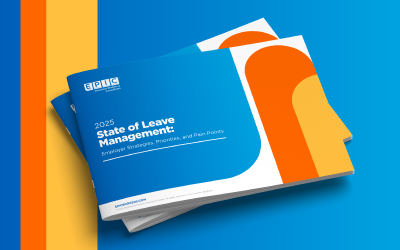One of the tangential effects of being in the healthcare brokerage business is that on the occasion there’s a global pandemic, employers turn to you for answers. And I’ll let you in on a dirty little secret – we are learning on the fly as well! Initially, there were many questions about how to effectively disinfect the work environment, what reasonable return-to-work standards are, how to gain access to personal protective equipment (PPE), and what specific services and communications target work-from-home employees. But now all the rage is vaccinations – questions such as “can we access vaccinations on a prioritized basis” and “what mandates are reasonable to impose on employees to ensure they get vaccinated”?
Viewpoints from Adam Okun
There is no doubt that vaccinations are a very sensitive subject.
The Kaiser Family Foundation (KFF) put out a recent survey that indicated 15% of the population will “definitely not get it” with another 12% saying they will “probably not get it.” And unfortunately, due to how politicized much of the COVID response has become, the feelings across the spectrum are very raw – with perceptions of an employer’s communications unnecessarily being seen through a political lens.
The good news is that it appears some of the political noise is quieting, with leaders in both parties embracing the vaccine. And that same KFF survey indicated 20% would “definitely not get” the vaccine only three months ago, suggesting inroads are being made in softening the opposition.
But all this leads us to a quandary for the employer. Can they mandate employees take the vaccine?
Well, the Equal Employment Opportunity Commission (EEOC) released guidance this month suggesting that forcing employees to get the vaccine will not violate the Americans with Disabilities Act (ADA) – which typically limits an employer from demanding medical examinations and bloodwork of its employees. The logic being that the employer is not seeking any information about the employee or its healthcare conditions purely by mandating the vaccine.
Still, employers will need to be careful with what information they request from employees concerning vaccine administration.
What specific language will be acceptable in screening and what punitive measures are legally enforceable remain to be seen. Presumably, the private sector will eventually settle on some legally tested national standard.
We will be watching these developments closely in the weeks ahead.
In the meantime, we’d love to get a read on employers’ initial thoughts on how the availability of the vaccine will be addressed in their workforce, as well as how COVID-19 has impacted other benefits and policies. Take our EPIC Market Pulse Survey: The Vaccine and COVID-19’s Impact on Benefits and Policies.
Check out more of our EPIC Resources:
Visit the EPIC coronavirus update center for COVID-19 information
Sign up for EPIC Newsletters in one convenient location
See results from our In It Together pulse surveys on our COVID-19 strategic collaboration and idea-sharing forum
EPIC offers these opinions for general information only. EPIC does not intend this material to be, nor may any person receiving this information construe or rely on this material as, tax or legal advice. The matters addressed in this article and any related discussions or correspondence should be reviewed and discussed with legal counsel prior to acting or relying on these materials.
Related Content
Products
Employee Benefits Consulting
Our dedicated benefits team is focused on delivering better outcomes – to both your benefits program and ...
Products
Compliance
We provide comprehensive consulting services and in-depth education regarding the ever-changing employee ...
Products
Wellbeing & Health Management
Our consultants help you create a strategy around health management that will impact your culture and your ...



